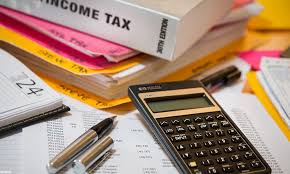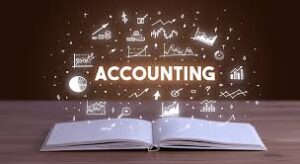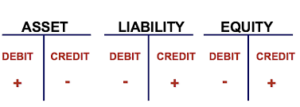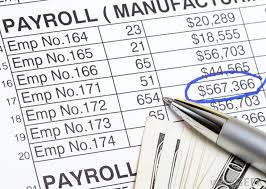10 Basic Accounting Guide for Small Business Owners
 10 Basic Accounting Guide for Small Business Owners
10 Basic Accounting Guide for Small Business Owners
Most small business owners are good at producing good ideas, creating good products and services, attracting customers, and building effective teams. But, many of them flop when it comes to basic accounting guides. As a small business owner, you do not start from delegating assignments to people, you have to them yourself.
As a small business owner, if you do not understand basic accounting guide, and different accounts you need to keep, there’s no way you will assess the success or failure of your efforts. You need to have a detailed monetary picture of your business, else you’ll run into cash flow problems. You cannot just be satisfied with knowing only your bank account balance, you must know everything that pertains to your business’ finances.
Below are ten (10) basic accounting guide you must have knowledge of as a small business owner
- Accounts receivable
Receivables are money due from customers. For instance, if your business sells products or services, but do not get paid immediately, what you have is “receivables”. You must be able to track the receivables, and keep it up to date. This helps you to send invoice and timely bills to the customers. It also helps you to know the cash to be received, so you don’t run into debt.
Accounts receivable is an asset account on the balance sheet that shows the money due to a company in the short-term. They are current assets, and are granted mostly to loyal customers who have patronized you over the years. It saves your customers the stress of having to carry physical cash to pay for goods or services rendered. As much as accounts receivables serve as a form of inherent for your company, it is essential that you have a record for it, so you can track the progress.
- Sales account
A sales account is the record of all sales transactions. It consists of cash and credit sales. When sales are made to a customer, it is recorded in the sales account. The total account of the cash and credit sales are merged with the sales returns and incomes account to get the net sales figure that is documented in the income statement.
It is important that you record sales in a timely and accurate manner, so you can know where your business stands. It is easy to procrastinate the recording of sales, but you should endeavor to record them as they come. This helps you to track the amount of sales made per day, and it also helps in taking stock of your products at the end of the day.
 10 Basic Accounting Guide for Small Business Owners
10 Basic Accounting Guide for Small Business Owners
- Accounts payable
Accounts payable is the account that shows the amount a company owes its suppliers or creditors. This is the amount due to vendors and suppliers for goods or services that have not been paid for by the company. No one likes to let go of money in a business, so it is easy to overlook or forget that you need to pay up to suppliers. This is why it is important that you have a record for your accounts payable.
Having a record for this account helps you to make timely payment for goods or services received from suppliers. It also helps you to avoid paying twice for a good or service already paid for. Once you know the money payable to outsiders, it helps you to keep track of your sales and business as a whole. This is one area worth considering accounting and bookkeeping services; accounts payable and accounts receivable are extremely important and should be handled by a financial professional.
- Cash account
A cash account refers to the account in which all cash transactions made by customers are recorded. It is an account such that a customer is required to pay the full amount of the goods or services bought. Apparently, all your business transactions pass through the cash account, thus, the need to keep a record of it.
The cash account contains cash receipts, and cash payment journal. The cash receipt is an evidence of payment handed out to customers who they pay for goods or services in cash. It is provided to payments received by the company. They are often printed documents that are given to customers every time they pay for certain goods or services.
Cash payment journal is the journal that is used to record all payments made by cash. This helps to track all cash payments in the company, and should be kept up to date. This record can serve as an evidence for fraudulent activities by customers who claim to have paid for a product or service.
Read Also: 21 Financial Intelligence Ideas for Entrepreneurs
- Loan payable
Loan payable account is where you record the money borrowed to acquire equipment, or other entities for your business. This account helps you to track the due dates for the loans and the payments made. Loan payable is different form accounts payable in that the latter does not charge interest, while the former does. Loan payable is normally based on goods or services acquired for the business.
When you have an accurate and timely record for loans payable, it helps to track if the equipment has been able to pay for itself. The main purpose of acquiring loan for equipment and gadgets is for them to produce more results, this record helps you to monitor this.
 10 Basic Accounting Guide for Small Business Owners
10 Basic Accounting Guide for Small Business Owners
- Inventory account
The purchases account is a register account in which the inventory purchases of a business is recorded. They are products that are not sold, and must be accounted for. This account helps to calculate the amount of inventory available to be sold in a systematic inventory system. In a periodic system, the amount of purchased inventory is accumulated throughout a particular period and added to the start up inventory to get the amount of inventory available for sale.
Keeping a record of this account helps to track the company’s gross profit at the end of a business month or year. It helps to know the costs of goods sold, and the amount of goods still available for sale. A physical count can also be done to be sure you have an accurate number.
- Retained earnings account
This account tracks the profit that are reinvested into the business and are not paid to the owners. It is the amount of net revenue left for the business after dividends has been paid out to it’s shareholders. A business’ earnings can be positive or negative. Positive earnings provides the owners the opportunity to use the extra profits for the growth of the business.
Sometimes, business owners pay this extra earnings to their share holders, but it can also be reinvested into the business for growth motives. Having a record for this account helps you to track how your business is faring over time.
- Payroll expenses
Payroll journal entries are used to record payroll expenses in a business. Payroll expenses includes the money paid for salaries, gross wages and payroll taxes. For small business, this is the highest cost of all, and it is paramount that the record is kept up to date, especially for meeting governmental reporting requirements and tax.
Not paying attention to this record can out you in serious trouble in the business. You can run into problem with your employees and with the government, so this is an important record you should not joke with in your business.
 10 Basic Accounting Guide for Small Business Owners
10 Basic Accounting Guide for Small Business Owners
- Owner’s equity account
Owner’s equity is the owner’s privileges to the assets of the business. It is the money left over for the owner after you have removed the liabilities from the assets. It also tracks the amount of money the owner invested in a business. It is one of the most important, but underrated account in your financial statement.
It is commonly used for sole proprietorship, but if the business is a limited liability or a corporation, the terms used are ” shareholder’s equity”, or “stockholder’s equity”. As much as you want your business to grow, it is important that you do not neglect this financial aspect of the owner.
- Purchases account
The purchases account helps to track raw materials or goods purchased for a business. This is an account that records every purchase that was made into the business over time. Keeping this record helps to track the sales of those products. It also helps in calculating the gross profit, and the number of goods left unsold.
Hope you enjoy this article?
Share your thoughts in the comment session.
Contact us today for your business consultancy and business advisory services. We can help you fine tune your idea, structure your business, market your business, train your staff, consult on your retirement plan, coach you for financial success. We also write business plan and help with fund raising strategies and Grant applications. We can help you start, grow and expand your business.
Call or WhatsApp us now on 081 0563 6015, 080 7635 9735, 08113205312 or send email to dayohub@gmail.com and we will solve any of your business problem.
Related